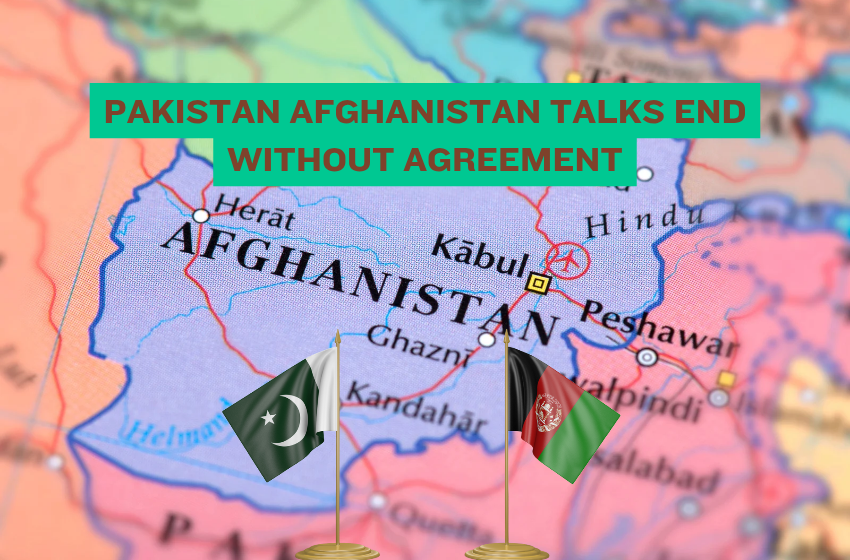
Pakistan Afghanistan Talks End Without Agreement
Pakistan and Afghanistan talks ended in Istanbul without reaching any agreement. Both sides failed to agree on how to monitor and stop cross-border terrorism.
Defense Minister Khawaja Asif confirmed that the talks have ended and entered an indefinite phase. He said the Afghan delegation came to Istanbul without a clear plan or readiness to sign any written deal.
A senior security source also confirmed that the negotiations had reached a deadlock. However, a fragile ceasefire between both sides still remains in place.
Read Also: Pakistan Will Not Tolerate Terrorism from Afghan Soil
Khawaja Asif warned that Pakistan will respond strongly if Afghanistan violates the ceasefire. He said Pakistan’s main demand is to stop attacks launched from Afghan soil.
The third round of Pakistan Afghanistan talks began on Thursday in Istanbul and lasted two days. Pakistan’s delegation was led by ISI Director General Lt. Gen. Asim Malik, along with senior military, intelligence, and foreign ministry officials.
The Afghan delegation was led by Abdul Haq Wasiq, head of the General Directorate of Intelligence (GDI). Sohail Shaheen, Anas Haqqani, and Deputy Interior Minister Rahmatullah Najib were also part of the team.
After the talks failed, the Pakistani delegation left their hotel for the airport. Reports said there was no direct meeting between the two sides except one joint session held earlier with Qatari and Turkish mediators.
Some Pakistani officials are still in Istanbul to work with the mediators. Sources said efforts will continue to restart the negotiation process.
Mediators met the Afghan side separately on Friday to share Pakistan’s concerns and demands. Foreign Office spokesperson Tahir Hussain Andrabi said the Pakistani delegation presented its position clearly and based on evidence.
He added that Pakistan’s only goal is to end cross-border terrorism. Mediators are now discussing Pakistan’s demands with the Afghan side point by point.
These talks began after deadly border clashes in early October that killed several soldiers and civilians on both sides. Qatar and Turkey are acting as mediators.
The first round was held in Doha, resulting in a fragile ceasefire. The second round, also in Doha, led to a general understanding of how to monitor the ceasefire.
The latest round aimed to finalize this monitoring mechanism. However, Afghan negotiators called Pakistan’s demands unrealistic and aggressive, saying they could worsen tensions.
Sources familiar with the talks said Afghanistan told Pakistan it was now up to Islamabad to decide how to handle the situation.
Information Minister Attaullah Tarar said Afghanistan must fulfill its international and regional duties to control terrorism. He added that Pakistan will use all necessary options to protect its people and sovereignty.
Foreign Office spokesperson Tahir Andrabi also stressed that Pakistan will continue to protect its citizens, army, and border forces from attacks originating in Afghanistan.
The Pakistan Afghanistan Talks show that while communication continues, deep mistrust and unresolved issues remain a serious challenge.









